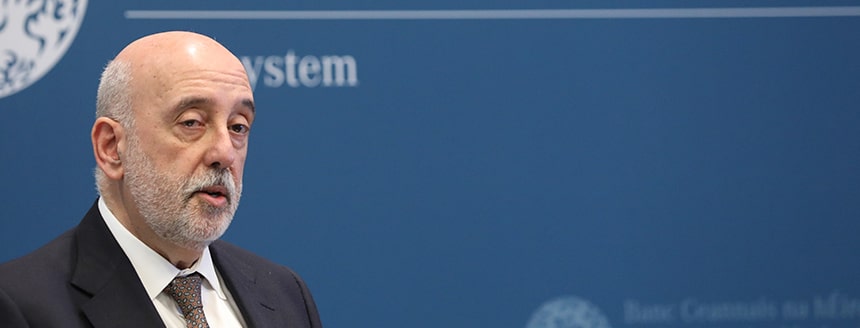
Simplifying rules could go too far – Central Bank
The Central Bank has warned of a risk that potential changes to financial regulations aimed at simplifying them could go “too far”.
The regulator said that a period of potential consolidation and reviews of rules to ensure that they did not create unintended consequences, or an undue burden, was “timely”.
“However, there is a risk, in the current geo-political context, that any changes could go too far and could remove the important protections and resilience that the current framework delivers,” it added.
Protections
The comments came in a report published today (28 February) that sets out the Central Bank’s regulatory and supervisory priorities for 2025.
Governor Gabriel Makhlouf said that his organisation would work with other regulators and stakeholders on to simplify regulations to support innovation and productivity.
“In any drive to simplify, however, we need to be clear that we do not compromise on delivering the stability, resilience, and protections that consumers and the wider economy need, and the public expects,” he added.
The Central Bank said that the financial sector was undergoing “rapid change” that was bringing new products and services to the market, but also new risks.
Outsourced services
Makhlouf said that the regulator was seeing growing operational risks, reflecting the increasing digitalisation of financial services and the sector’s growing reliance on outsourced services provided by third parties.
“Cyber-attack threat levels are also increasing. We have all seen the practical consequences service outages due to operational incidents can have on consumers and the wider economy,” he stated.
The report says that the increasing number of firms in the technology-led payments, e-money, and crypto sectors is providing new opportunities for criminals, warning that several such firms have “ineffective control frameworks”.
On AI, the report says that, while the financial sector has yet to see “transformational change”, deployment of the technology may be accelerating.
“Several risks to consumers and investors arise due to how the financial sector uses data and, increasingly, AI tools – including privacy and targeted manipulation concerns,” the regulator states.
Climate scenarios ‘too benign’
On climate, the report refers to “a continuing watering down by governments and corporations of earlier net-zero commitments and timelines, with increasing gaps between progress actually made and that needed to slow down global warming”.
The Central Bank also highlights concerns that the climate scenarios in the risk models used across the financial sector are “too benign”.
“In addition, extreme climate-related events will progressively make insurance more expensive and less available in high-risk areas, potentially resulting in protection gaps that could weaken the financial resilience of those affected,” the report warns.
Overall, the Central Bank says that it is adopting a new “holistic” supervisory approach to all aspects of its mandate, which is aimed at continuing to ensure that the financial sector operates in the best interests of consumers and the wider economy.
Among its plans for 2025 is a revised Consumer Protection Code, which it says will be published in the first quarter of this year. It will also move forward with changes to the credit-union lending regulations, and implement measures contained in planned legislation on access to cash.